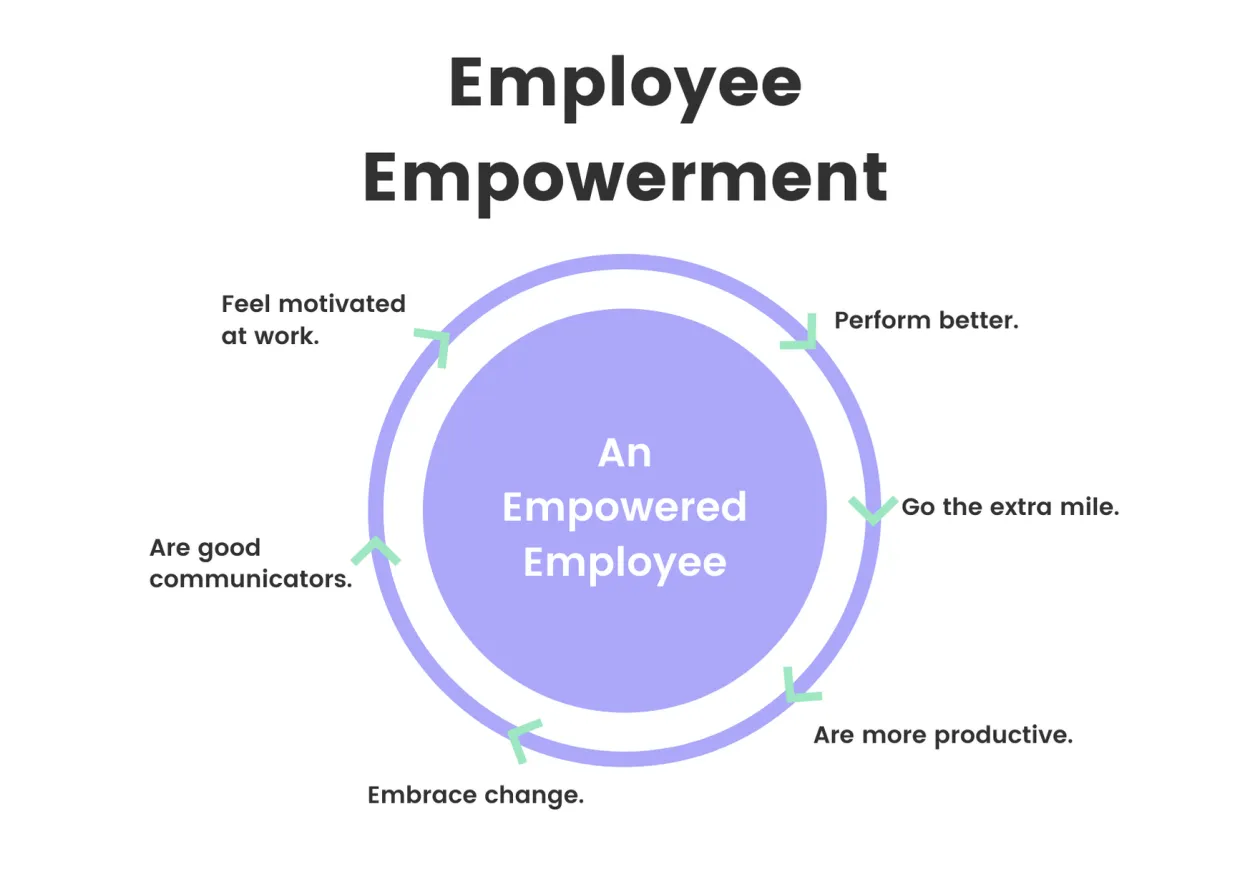The role of empowerment in employee engagement is crucial in today’s dynamic work environment. Empowerment enables employees to take ownership of their work, make decisions, and contribute to the overall success of the organization. This article explores the impact of empowerment on employee engagement and how it can drive productivity and satisfaction.
Understanding the Meaning and Significance of Employee Empowerment
Employee empowerment plays a vital role in the overall engagement and success of an organization. By granting employees the authority, autonomy, and resources to make decisions and take ownership of their work, organizations can harness the full potential of their workforce and drive innovation.
Employee empowerment goes beyond simply delegating tasks. It is about creating a supportive environment that encourages employees to think critically, solve problems, and contribute their ideas and expertise. When employees feel empowered, they are more likely to be motivated, engaged, and committed to their work, resulting in higher productivity and job satisfaction.
One of the key benefits of employee empowerment is that it fosters a sense of ownership and accountability. When employees are given the authority to make decisions, they feel a greater sense of responsibility for the outcomes. This not only improves their performance but also enhances their personal and professional growth.
Moreover, employee empowerment promotes collaboration and teamwork. When individuals are empowered to take initiatives and make decisions, it cultivates a culture of trust and open communication. Employees feel valued and respected, leading to improved collaboration and synergy among team members.
However, effective employee empowerment requires a supportive leadership style and a culture that embraces change and continuous improvement. It is essential for leaders to provide clear expectations, regular feedback, and mentoring to empower their employees effectively. Additionally, organizations must invest in training and development programs to equip employees with the necessary skills and knowledge to make informed decisions.
In conclusion, employee empowerment is a crucial aspect of employee engagement. It not only enhances individual performance but also contributes to a positive work environment and organizational success. By understanding the meaning and significance of employee empowerment, organizations can create a workforce that is motivated, committed, and fully engaged in achieving the company’s goals.
Creating a Supportive and Inclusive Organizational Culture
Organizational culture plays a crucial role in fostering employee engagement and productivity. One key aspect of a successful organizational culture is creating a supportive and inclusive environment for all employees.
Supportive culture means that employees feel valued, respected, and supported in their work. It is important for leaders to provide clear expectations, regular feedback, and recognition for employee contributions. This helps employees feel empowered and motivated to excel in their roles.
Inclusive culture, on the other hand, involves promoting diversity and actively working towards eliminating biases and discrimination. Organizations should strive to create an environment where all employees feel welcome, regardless of their gender, race, age, or background. This can be achieved through initiatives such as diversity training, inclusive hiring practices, and fostering inclusive communication channels.
By promoting a supportive and inclusive culture, organizations can enhance employee engagement levels. Employees who feel supported and valued are more likely to be satisfied with their work and committed to the organization’s goals. They are also more likely to exhibit higher levels of productivity and discretionary effort.
To create a supportive and inclusive organizational culture, it is essential for leaders to lead by example and demonstrate inclusive behaviors. They should actively listen to their employees’ concerns, promote open communication, and ensure that everyone has equal opportunities for growth and development.
The Impact of Empowerment on Job Satisfaction and Motivation
Empowerment plays a crucial role in enhancing job satisfaction and motivation among employees. When individuals feel empowered in the workplace, they experience a sense of ownership and control over their work, resulting in increased satisfaction and motivation to perform at their best.
Empowered employees are more likely to feel valued and appreciated by their organization. This feeling of recognition boosts their job satisfaction as it creates a positive work environment where their contributions are acknowledged and rewarded.
Furthermore, empowerment provides employees with the autonomy to make decisions and take initiative. This sense of autonomy fosters a greater sense of responsibility and motivation to achieve goals. Empowered individuals are more inclined to take ownership of their work, leading to increased productivity and performance.
Empowerment also promotes continuous learning and growth. When employees are given the authority to make decisions and experiment with new approaches, they are more likely to develop new skills and knowledge. This sense of personal development increases job satisfaction and motivation as individuals feel that they are progressing in their careers.
Overall, the impact of empowerment on job satisfaction and motivation cannot be underestimated. Organizations that prioritize empowering their employees create a positive work culture that fosters satisfaction, motivation, and ultimately, higher levels of performance.
Conclusion
Empowerment plays a crucial role in employee engagement. By giving employees the autonomy to make decisions, providing them with the necessary resources and support, and fostering a culture of trust and collaboration, organizations can greatly enhance employee satisfaction, motivation, and productivity. Empowered employees are more likely to take ownership of their work, feel valued, and contribute to the overall success of the company.




